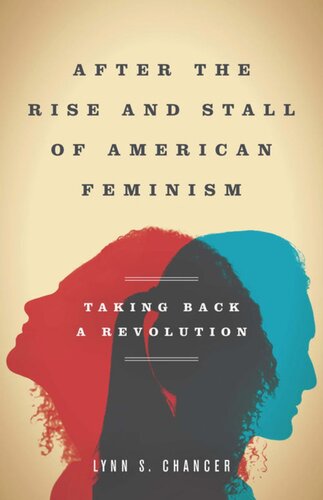

Most ebook files are in PDF format, so you can easily read them using various software such as Foxit Reader or directly on the Google Chrome browser.
Some ebook files are released by publishers in other formats such as .awz, .mobi, .epub, .fb2, etc. You may need to install specific software to read these formats on mobile/PC, such as Calibre.
Please read the tutorial at this link: https://ebookbell.com/faq
We offer FREE conversion to the popular formats you request; however, this may take some time. Therefore, right after payment, please email us, and we will try to provide the service as quickly as possible.
For some exceptional file formats or broken links (if any), please refrain from opening any disputes. Instead, email us first, and we will try to assist within a maximum of 6 hours.
EbookBell Team

0.0
0 reviewsIt is more than fifty years since Betty Friedan diagnosed malaise among suburban housewives and the National Organization of Women was founded. Across the decades, the feminist movement brought about significant progress on workplace discrimination, reproductive rights, and sexual assault. Yet, the proverbial million-dollar question remains: why is there still so much to be done?
With this book, Lynn S. Chancer takes stock of the American feminist movement and engages with a new burst of feminist activism. She articulates four common causes—advancing political and economic equality, allowing intimate and sexual freedom, ending violence against women, and expanding the cultural representation of women—considering each in turn to assess what has been gained (or not). It is around these shared concerns, Chancer argues, that we can continue to build a vibrant and expansive feminist movement.
After the Rise and Stall of American Feminism takes the long view of the successes and shortcomings of feminism(s). Chancer articulates a broad agenda developed through advancing intersectional concerns about class, race, and sexuality. She advocates ways to reduce the divisiveness that too frequently emphasizes points of disagreement over shared aims. And she offers a vision of individual and social life that does not separate the "personal" from the "political." Ultimately, this book is about not only redressing problems, but also reasserting a future for feminism and its enduring ability to change the world.